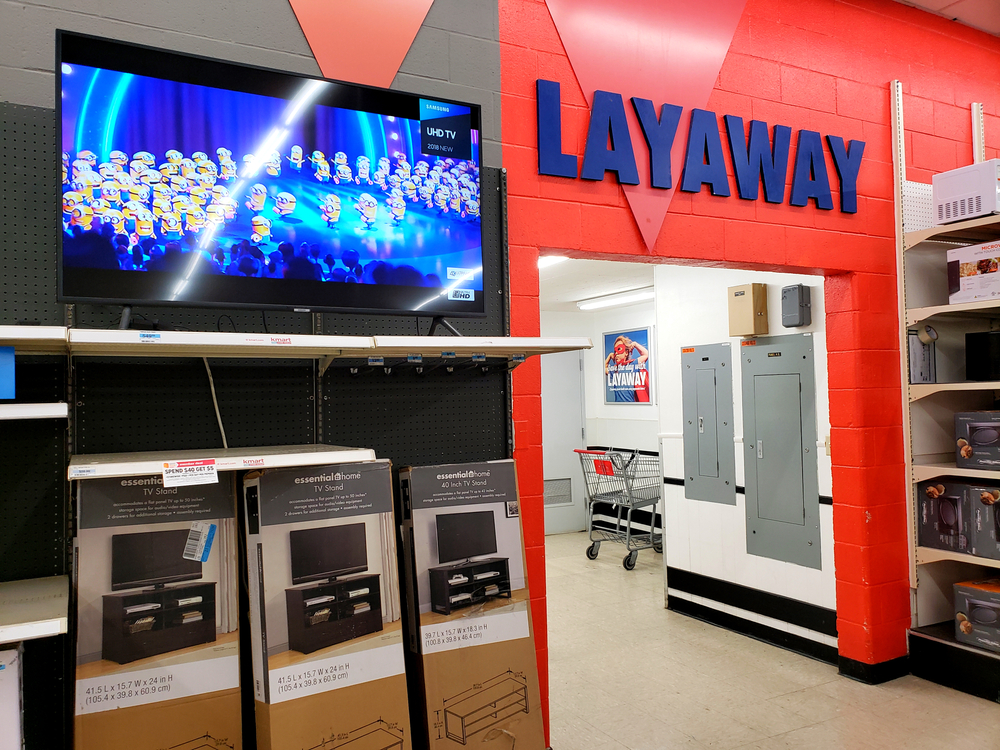DISCLAIMER: As the COVID-19 public health situation evolves, new regulations are being continually issued. This page/story/information may not include the most recent information.
By Art Raymond@DNTechHive Nov 27, 2021, 9:00pm MST
There was a time when shopping at almost any U.S. retailer included the option to choose an item you were after and have it stashed away in some back room while you made incremental payments until the purchase price was covered and you could take it home.
Those layaway plans mostly disappeared decades ago as credit cards arose as the go-to option for consumers to cover the cost of goods they couldn’t quite afford in the moment. In-store financing also became a thing for many stores, particularly those offering high-ticket items like furniture and appliances.
Now, a tech-driven option that occupies a sort of middle ground between layaway and in-store financing is on the rise and, like the purchase plans that have come before, it could cost you.
Buy-now-pay-later doesn’t sound like a particularly fresh idea, but a growing number of tech platforms are finding success in partnering with retailers to offer portals for issuing credit at time of purchase that allows the consumer to check out, virtually or in-person, with their goodies after agreeing to an installment plan. Some charge interest, some don’t, and rescheduling a payment or paying late can also come with charges.
In spite of U.S. consumers having record-high household savings rates over the past nearly two years of pandemic conditions that put the brakes on a lot of discretionary spending, the new buy-now-pay-later systems are, quite simply, kind of killing it.
On Wednesday, Adobe Analytics reported the number of online holiday shopping orders paid for using buy-now-pay-later plans this year is up 466% over 2019 and the value of those purchases up 447% over two years ago.
But, why not just use a credit card?
Buy-now-pay-later providers have carved out a consumer financing niche, using real-time “soft” credit inquiries that don’t pull up credit scores, don’t appear on the applicant’s credit report and, should credit be issued, doesn’t report new debt obligations back to credit agencies. This opens the door for applicants who may not qualify based on their scores, want to avoid maxing out current credit cards or who simply don’t have ample credit history to pass a more in-depth credit assessment.
In a recent report from Investors.com, Chief Financial Officer Michael Linford, from buy-now-pay-later platform Affirm, said there are motivations beyond credit challenges pushing consumers toward the new installment payment options.
“Users range the full credit spectrum from super-high FICO scores with pristine credit to folks who are distrustful of revolving credit vehicles all the way down to people who have thin credit files or no files,” Linford said.
To be clear, not all of the buy-now-pay-later providers offer interest-free payment plans, and Linford’s company is perhaps most notable among them. Affirm has struck deals with Amazon, Walmart, Peloton, Wayfair and others and assesses installment plan interest rates ranging from 0% to 30% based on the applicant’s credit, according to the company.
Walmart has been among the few big U.S retailers that kept layaway alive for shoppers but recently shelved the option, now offering the Affirm financing instead for customers who want to pay over time.
In lieu of interest-generated revenues, many of these new credit issuers harvest earnings from merchant fee charges that run significantly higher, 4% to 5% of purchase values, than what stores pay credit card issuers, around 2% of purchase value, according to Investor.com.
A July report from McKinsey and Co. found around 65% of consumers making buy-now-pay-later purchases had credit scores above 700, and noted the transactions Affirm mediated with Peloton, the maker of pricey home exercise bikes and equipment, were with consumers that had an average credit score of 740.
McKinsey analysts also reported about 60% of consumers say they are likely to use some type of point-of-sale financing over the next six to 12 months.
Some personal finance experts warn the lure of zero-interest financing and light-duty credit checks, combined with the shopping zeal of the holiday season, could lead to dire financial consequences for unwary consumers.
Last month, CNBC reported 1 in 3 Americans expect to take on debt this holiday shopping season, according to an October Credit Karma survey. But no matter how people plan to purchase their holiday items, consumers should be mindful of their spending, and any interest or late fees that may be part of credit card or buy-now-pay-later models.
Whether purchases are through a buy-now-pay-later service or a credit card, “consumers should fully understand the transaction,” a spokesperson for Affirm told CNBC.
“People tend to lose their minds, financially speaking, right around Black Friday,” said John Ulzheimer, a credit expert. “So, when you combine a higher delinquency rate with more debt, which is what happens at the end of the year, because of holiday shopping activities, you are combining two things that are pretty dangerous.”
